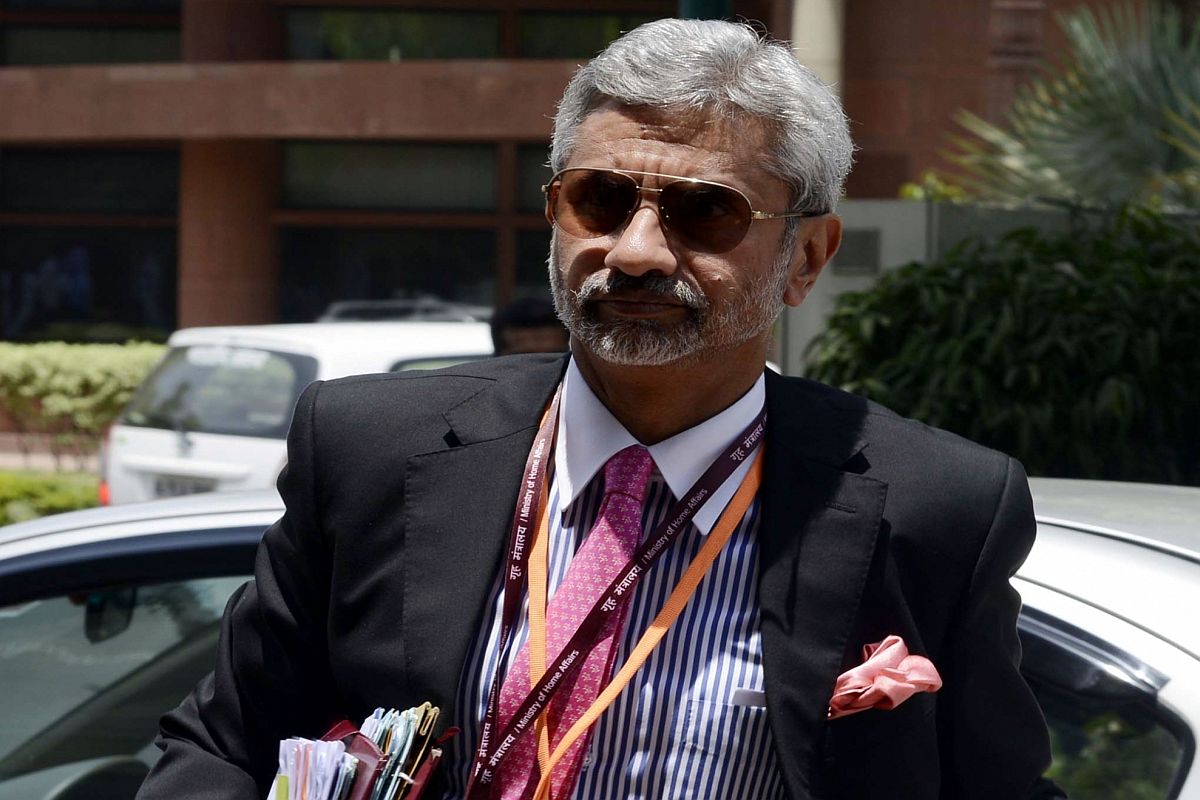Jammu and Kashmir: Migrant labourer from Bihar shot dead by terrorists in Anantnag
The victim, whom the police identified as Raju Sah of Bihar, succumbed to injuries during treatment.
Jammu and Kashmir was put under virtual curfew since 5 August when the Modi government scrapped the Article 370 and split the state into two union territories.

External Affairs Minister S Jaishankar (File Photo: IANS)
External Affairs Minister S Jaishankar has justified the restrictions on phone and mobile services in Jammu and Kashmir saying that it was needed to stop communication between terrorists.
In an interview with POLITICO magazine in Brussels, Jaishankar said the internet and telephone outages were needed to stop the activation of “terrorist assets” and to prevent “people who are doing violence to contact each other”.
“How do I cut off communications between the terrorists and their masters on the one hand, but keep the internet open for other people? I would be delighted to know,” Jaishankar said.
Advertisement
The Foreign Minister further said that the security restrictions across the Valley would be eased in the “coming days”.
This should involve a reduction in the number of extra security forces, he said, adding that he wanted the police sent back to their original duties soon.
“Frankly they have other jobs and other things to do,” Jaishankar said.
He also denied that there was a Hindu nationalist agenda in removing Kashmir’s special status in order to allow more non-Muslims to buy property there and muscle aside the Muslim majority.
Meanwhile, Jammu and Kashmir government on Monday said that 90 per cent of the Kashmir Valley is free of any day-time restrictions. The administration also claimed that all essentials supplies were intact.
Jammu and Kashmir was put under virtual curfew since 5 August when the Modi government scrapped the Article 370 and split the state into two union territories.
Telephone line services, including mobile phones and landlines, were suspended in the early hours of August 5.
Earlier, Jammu and Kashmir Governor Satya Pal Malik had also justified the imposition of severe restrictions saying that it was done to prevent any loss of life.
“The medium of phone and internet is used less by us and mostly by terrorists and Pakistanis as well as for mobilisation and indoctrination. It is a kind of weapon used against us and so we have stopped it. Services will be resumed gradually,” he had said.
Tensions between India and Pakistan escalated after the Centre abrogated Article 370, that granted special status to Jammu and Kashmir and further bifurcated the state into two Union Territories.
Pakistan has been trying to gain global attention by raising the Kashmir issue at the United Nations.
Recently, Shireen M Mazari, minister for human rights in the Imran Khan government had issued a letter to multiple UN officials, listing Pakistan’s complaints about the situation in Jammu and Kashmir since the abrogation of Article 370.
India has categorically told the international community that the scrapping of Article 370 to revoke the special status of Jammu and Kashmir was an internal matter and also advised Pakistan to accept the reality.
Advertisement